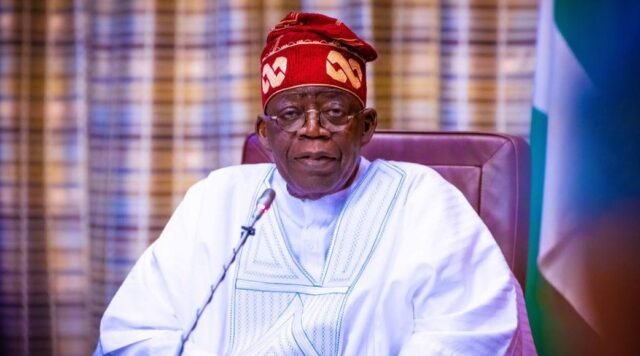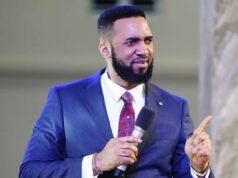Two Years On: Tinubu’s Candid Reckoning and Call to Persevere
By Segun Adeyemi | PulseNG
Two years into a presidency born in the heart of national turbulence, President Bola Ahmed Tinubu addressed the nation not with fanfare, but with reflection — measured, firm, and tinged with cautious optimism.
His anniversary speech was less about victory laps and more about confronting the weight of choices made, the cost of reforms, and the promise of a nation still in transition. From sweeping economic shifts to social investments and youth-driven innovation, Tinubu sought to remind Nigerians: though the journey has been difficult, the destination remains within reach.
Here are five key takeaways from a speech that sought to justify the past and inspire belief in what’s ahead:
1. Tinubu Defends Bold Economic Reforms
President Tinubu stood by his administration’s controversial reforms, particularly the removal of fuel subsidies and the unification of exchange rates. He acknowledged the hardship they caused but emphasized their necessity to avert fiscal collapse.
According to him, early signs of progress are visible: inflation is slowing, food prices are showing signs of stability, and local refining is boosting fuel supply security.
2. Fiscal Discipline and Debt Recovery Are Gaining Ground
Amid global economic instability and local food insecurity, Tinubu underscored his administration’s strides in fiscal management.
He cited a drop in the fiscal deficit from 5.4% of GDP in 2023 to 3.0% in 2024. IMF debts have been cleared, and Nigeria’s external reserves have surged from $4 billion to over $23 billion.
This turnaround, he said, is fueled by improved revenue collection, the end of Ways & Means financing, and enhanced transparency.
3. Tax Reforms Are Paying Off
The President highlighted gains in revenue generation through tax reforms. Nigeria’s tax-to-GDP ratio rose from 10% to 13.5% within a year.
To ease the burden on vulnerable groups, VAT was scrapped on essentials such as food, public transport, education, rent, and renewable energy.
A Tax Ombudsman is also in the works — a move Tinubu said will protect small businesses and ensure fairness in the tax system.
4. Infrastructure, Health, and Education in Focus
Tinubu showcased broad investments in physical and social infrastructure. Thousands of kilometres of roads are under construction, over 1,000 Primary Health Centres are being revamped, and health insurance coverage is expanding.
Under the Presidential Maternal Health Initiative, over 4,000 free C-sections have been performed.
On education, the government is investing in school infrastructure and rolling out a student loan scheme to expand access and opportunity.
5. Empowering Youth Through Innovation
Youth empowerment featured prominently in the President’s remarks. Tinubu celebrated strides in technology and industry led by young Nigerians and backed by the National Agency for Science and Engineering Infrastructure (NASENI).
Highlights include electric vehicle production, Africa’s leading Rapid Diagnostic Kit factory, and youth-focused initiatives like Innovate Naija and NASCAV.
As the midpoint of his first term approaches, Tinubu described his leadership as a “movement of action” — one requiring resilience, unity, and shared sacrifice. He acknowledged the pain still present but insisted that the foundation for a more stable, equitable, and prosperous Nigeria has been laid.
— Written by Segun Adeyemi for PulseNG




















